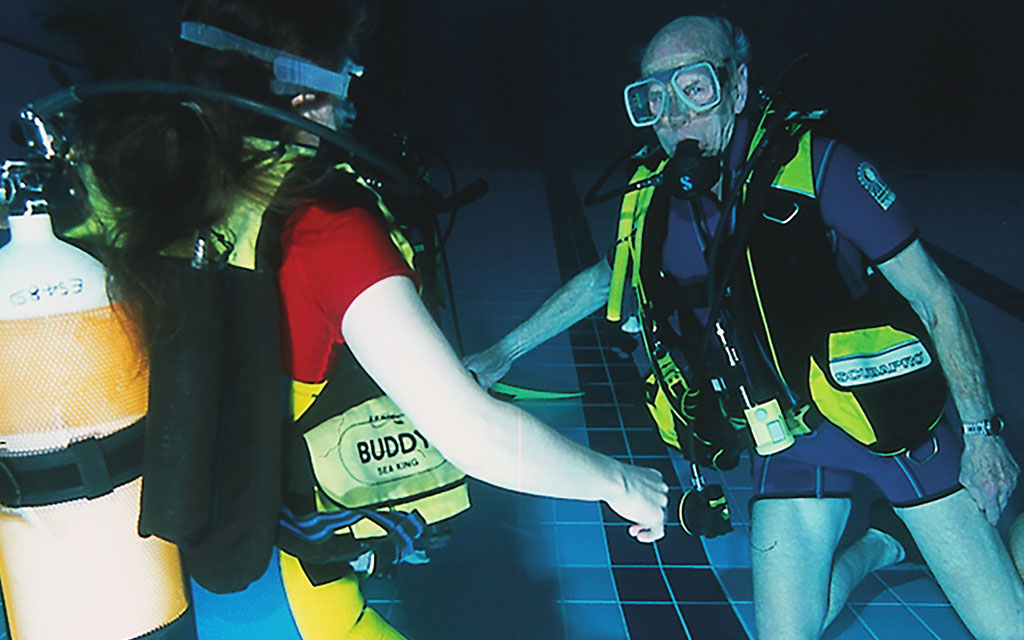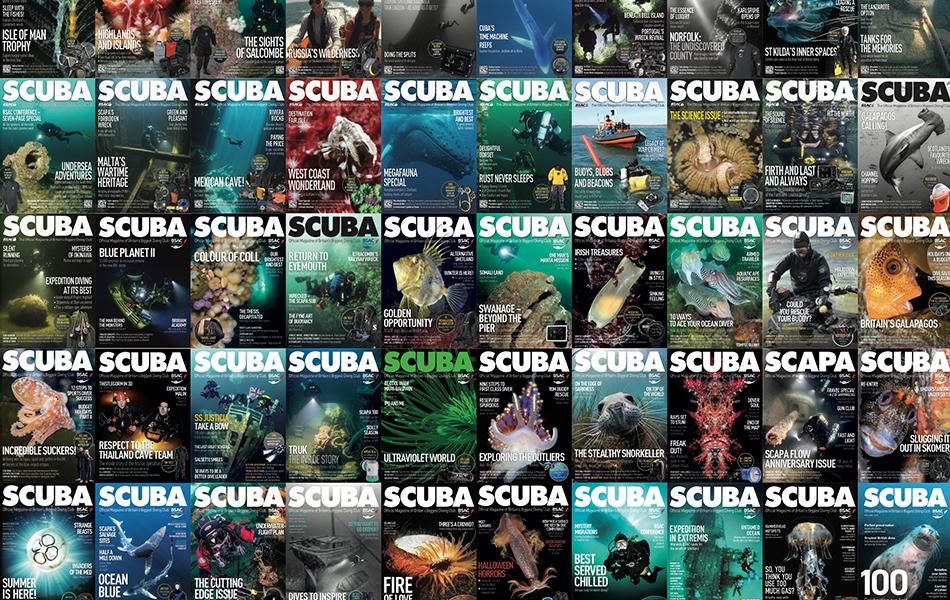
How does ageing affect diving? While some of us mature like fine wines, others may collect conditions that need to be addressed, says Dr Rosie Stokes of DDRC.
Many divers continue to enjoy the sport well into their older years; Jacques Cousteau was still diving in his 80s, and a 100-year-old recently broke the world record in the US! Officially, there is no upper age limit, but diving is an extreme sport and therefore we must take into consideration the aspects of physical health and mental ability that may change as we get older.
Diving is a strenuous activity, especially before and after the dive when hauling heavy equipment around. As we age, our muscle mass and bone density decrease, along with our aerobic fitness and physical capability. A balanced diet and regular exercise can help slow this change. Arteries can harden over time and cause hypertension (high blood pressure). This can be controlled using medication but, despite this, divers are still at risk of immersion pulmonary oedema (fluid on the lungs) and cardiovascular events, for example heart attacks and strokes. Eyesight, hearing, and reaction times can also diminish as we get older, which can reduce awareness underwater and slow response time in a scuba emergency.
Every diver should be able to react to an emergency and safely deal with a rescue, otherwise they are putting themselves and others at risk of accident. If a diving accident such as a decompression sickness or a barotrauma did occur, then the body may have less reserve to deal with this. This means that there is an increased risk of severe injury and death. Recovery would take a lot longer than it would do in a younger diver and there would be poorer outcomes, increasing the chance of permanent disability.
How do I know that I am safe to dive?
As with a diver of any age, it is important to maintain a healthy lifestyle and have an awareness of any health issues that you may have. Any medical condition or medication that you take may impact your diving and it is important to speak to a dive doctor to discuss the risk.
There is no specific age in which medical assessment is mandatory but here at DDRC, as a rough guide, we tend to suggest the following:
Age |
Interval for a face-to-face dive medical |
| 60-65 years | 5 yearly |
| 65-70 years | 3 yearly |
| 70-75 years | 2 yearly |
| 75+ years | Annually |
The exact interval that medical assessment is needed will depend on your specific medical conditions, the type of diving you do and specific recommendations from your diving doctor.
DDRC Healthcare Medical Director Dr Doug Watts says: “There are plenty of divers who are older, but while they may not be as sprightly as a newly qualified teenage diver, they have a huge amount of experience – in many situations I know who I would prefer as my buddy! With that being said, the physiological demands of diving are unique and as you get older the risks of a medical event underwater increase significantly. Divers are experienced in assessing risk and age needs to be a component of this – I think most people would agree that it is sensible to reduce your depth and adjust how demanding your diving is as you get older.
“Eventually, all of us are going to have to hang up our fins. Exactly when this happens is a very individual choice. One of the most important parts of my job is chatting with divers about this and giving them the information to make a decision. When someone has done thousands of dives over their life and decides that the time has come to significantly change their diving, or stop diving altogether, it’s often a painful moment. However, having that honest chat and weighing up the risk is something that is important for safety, and improving safety for divers is what we, as diving doctors at DDRC, are here for.
Interested in diving health and medicine?
This column is produced with DDRC Healthcare, specialists in diving and hyperbaric medicine. You can find out more on their website.
This Anatomy of a diver column was originally published in SCUBA magazine, Issue 122, January 2022. For more membership benefits, visit bsac.com/benefits.
Images in this online version may have been substituted from the original images in SCUBA magazine due to usage rights.

 Author: DDRC Healthcare | Posted 03 Apr 2022
Author: DDRC Healthcare | Posted 03 Apr 2022




